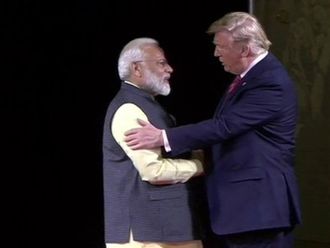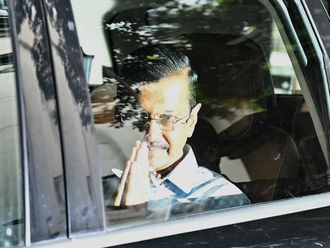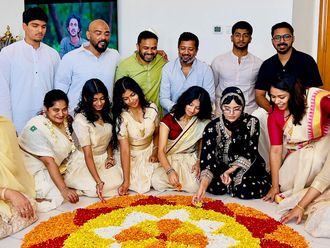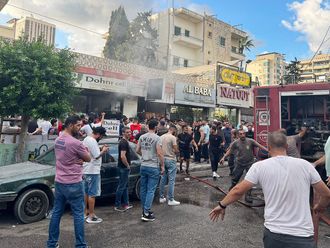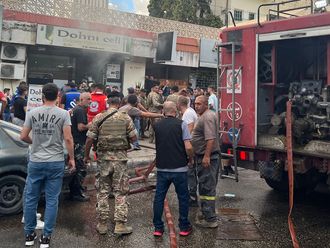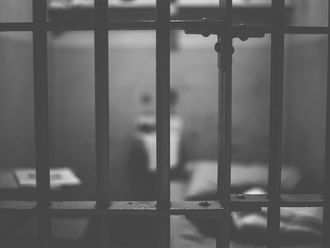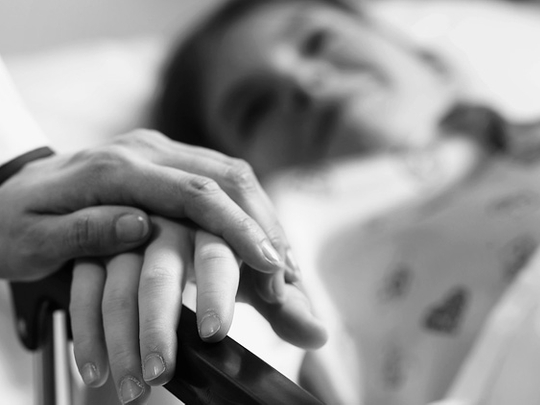
In recent years, raging debate and a handful of cases highlighted by the media have brought the issue of mercy killing into focus in India.
Added to the list is the plea of two brothers, Konda Jagannatham, 30, and Konda Manohar, 28, from Andhra Pradesh, who have appealed to the government to allow them to die by euthanasia.
Sons of a weaver in Ramakkapeta, in the Medak district, the two have been suffering from muscular dystrophy, a rare and incurable muscular disorder that cripples and leads to a slow, painful death.
Confined to their home for the past 15 years, they have pleaded that since the disease has been eating away at their bodies, they would like to donate their vital organs before it is too late. They want to die a peaceful death, they say.
In their appeal, one of the two stated: "We can't take care of our ageing parents. On the other hand, we have become a burden to them. We want to help others before we leave this world. Our request is that we should be allowed to die."
Their father, K. Durgaiah, also highlighted the mounting medical expenses which the family cannot pay. "I have sold the family property to meet the expenses and now I have nothing left with which to feed them [the brothers]," he said.
Since India does not allow mercy killing, the district medical and health officer, Dr Goverdhan Reddy, says the government will not consider the request. However, schemes such as Indira Kranthi Patham can help the family financially and provide medical treatment.
Although doctors say that the men need a care worker to help them on a daily basis, Jagannatham and Manohar have no choice but to depend on their parents and sister for everything.
All they have been getting through a state-government scheme for the disabled is financial assistance worth Rs500 (Dh42) each, which doesn't even cover the cost of their medicine.
According to reports, the two men led a normal childhood. However, one day Jagannatham collapsed on his way home from school. He never made a full recovery.
A year later, the same disease struck Manohar and he too became bedridden. The family consulted doctors, including specialists, but were told that the boys would never lead normal lives again.
While experts say the argument for euthanasia is about the "right to life" and "death with dignity", the Law Commission of India is seeking to legalise mercy killings in special circumstances for those who are terminally ill.
It has also asked the government to consider if laws can be enacted under which life-support systems can be withdrawn in the best interests of the patients. Although medical experts look for safeguards to protect elderly patients, as they feel euthanasia could mean an easy way out for families who want to get rid of the patient, many side with the Kondas.
Every case is different. Ram Jethmalani, former law minister and Supreme Court lawyer, says: "Subject to precautions, a patient or his family members should have the right to end a patient's life. Human beings have no right to make a person live in pain."
In the case of Aruna Shanbaug, what is "life" and what is "right" has been discussed many times. Shanbaug, a nurse, was raped and strangled with a dog chain at Mumbai's King Edward Memorial Hospital in November 1973. The brutal attack left her in a coma from which she has not recovered.
The asphyxiation cut off the oxygen supply to her brain. Lying unconscious in a vegetative state for the past 37 years, she has been force-fed every day and doctors say there is no hope of her recovering. Shanbaug's is not the first case to seek permission for mercy killing.
In 2004 a terminally ill Indian chess champion, Venkatesh, became the focus of a euthanasia debate before he died in hospital. Suffering from a genetic neurological disorder, he was on life support for more than seven months. Both the hospital authorities and the Andhra Pradesh High Court refused his request to turn off the life-support system.
The two cases are entirely different, yet their efforts have been equally futile. While Venkatesh wanted to donate his organs before they suffered irreparable damage, Shanbaug is in no position to convey whether she wants to live or not, although doctors at the hospital claim she can "feel" the pain she is going through.
The word "euthanasia" is described as "a gentle and easy death" in the dictionary and the practice is used for those suffering incurable pain. However, only a few countries permit mercy killings.
It was legalised in the Netherlands in 2002, and in Germany, a doctor is allowed to provide a patient with the means to terminate his or her own life. However, they are not allowed to administer the necessary substance.
There is no law governing euthanasia in India and many ask if the country should change its legislation. Not only do patients suffer pain, their families have to bear the trauma of seeing them suffer.
In many cases, they are on the brink of starvation after paying heavy medical expenses for the treatment of diseases that have no cure.
Nadiya, a girl from a middle-class family, is visibly pained to talk about the subject, even five years after her mother's death. "My mother, an arthritis patient, was put on steroids by the All India Institute of Medical Sciences [AIIMS] in New Delhi," she says.
"This weakened her bones, and in 2005, her L3 vertebra collapsed. Suffering from acute back pain, she had to undergo several tests and was put on strong antibiotics. Her condition grew worse and we admitted her to AIIMS."
At the hospital her mother developed pneumonia. Complications arose as a result and she was put on a ventilator. The doctors lost hope.
Her mother had meant the world to Nadiya, who had lost her father some years earlier. "It wasn't easy for me to see her in that state and I asked a senior doctor treating her to let her be at peace," she recalls. "But according to the doctor, withdrawing the feeding tubes and the ventilator, or stopping the antibiotics would been painful for her at that stage, as all her vital organs had up until then been functioning the right way."
Nadiya decided to continue with the treatment, which meant buying injections and medicines worth thousands of rupees daily. But her mother never regained consciousness. And within ten days, her lungs, kidneys and liver were affected. Nadiya knew it was a lost cause.
She was seeing the person she had loved most in the world die. The pain was being prolonged, both for the mother and the daughter. Mentally exhausted and financially hit, Nadiya finally put her foot down and refused to buy injections. Surprisingly, the doctors did not protest.
"I know that if there had been even an iota of chance of her surviving, I would have done everything in the world to save her. But imagine, a doctor later told me that my mother had no chance of survival right from the beginning," Nadiya recalls.
She shudders to remember how the tubes were fitted into her mother, some of which were inserted right in front of her eyes. "Even after all these years, I find it difficult to live with the memory of that pain. No doctor or politician will understand the trauma I go through. I wish I could have saved her from that torture in her last days," she says.
"There are others who suffer similarly. But in India it is difficult to bring in any legislation for mercy killing. Because such a law is not going to get any political votes, no political party will take the initiative of proposing such a bill."
A neurosurgeon with a reputed hospital said: "Withdrawing life-support systems from terminally ill patients is the right approach to the life of the patient and their near and dear ones. But since even in the medical profession, as in other areas, people could misuse the law in collusion with the patients' relatives, it is imperative to have certain safeguards.
"A couple of independent doctors, apart from the treating doctor, should be able to certify the condition of the patient. To be doubly sure, even a psychiatrist could be consulted to confirm the patient's state."
Dr R. Ganesh Kumar, a cardiologist, says: "Where medical treatment exists and a patient can be treated in a conducive manner, all is well. But if a doctor is medically sure, for example, in certain cases of cancer, which cannot be treated, or if a patient is lying in a vegetable state, there should be no two opinions about easing things for the patient."
Citing other instances, he says: "At times a patient has to be put on a ventilator and no doctor can say when the patient will come out of that state or whether or not there are chances of his survival at all. He could even lie in that state for days or more than a month and then recover. In such uncertain cases, there is no way we will pull the plug. And if the patient's relatives are unable to pay the medical expenses, we advise them to take the patient to a government hospital."
Nilima Pathak is a freelance writer based in New Delhi.



